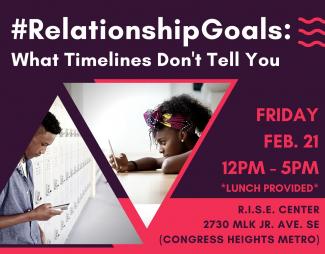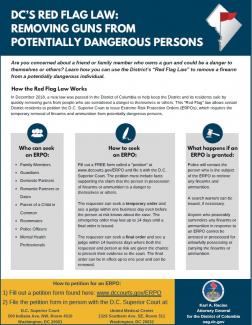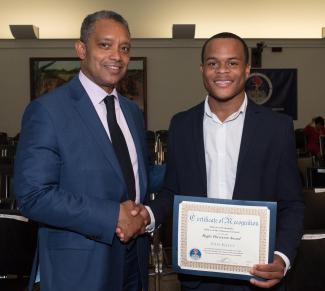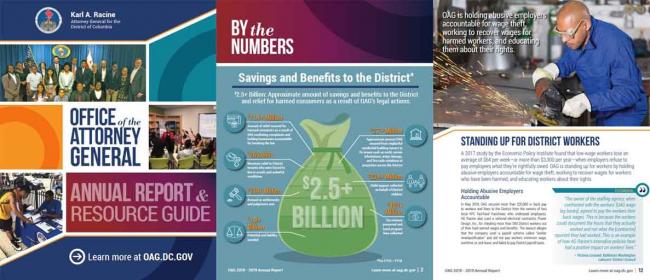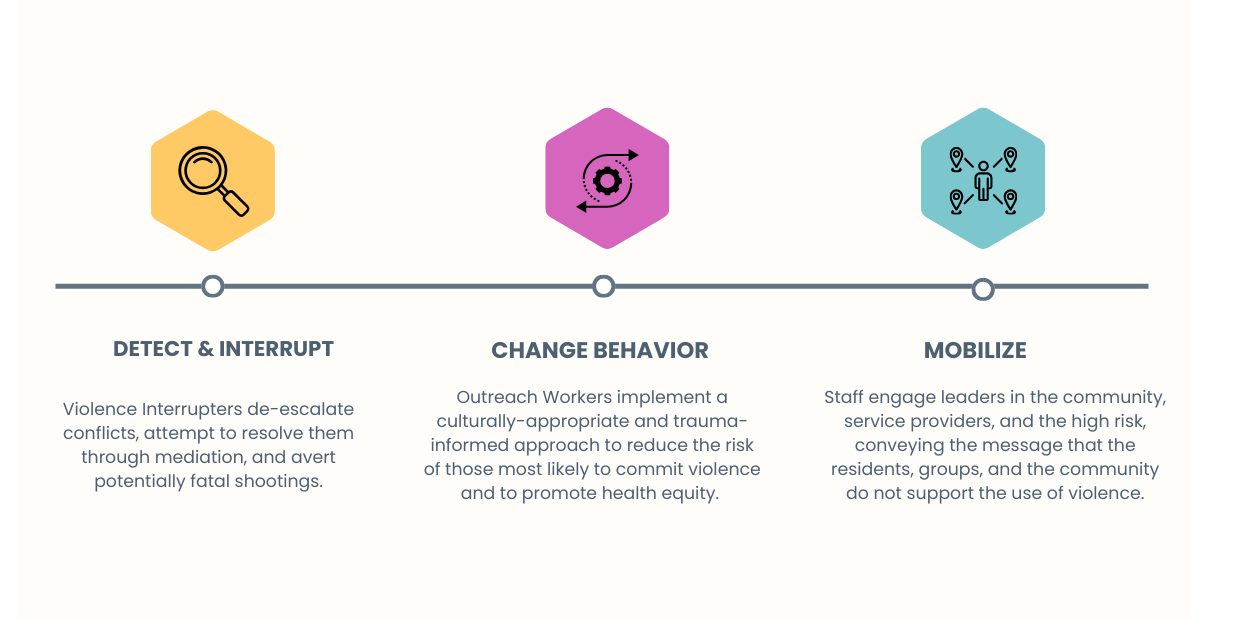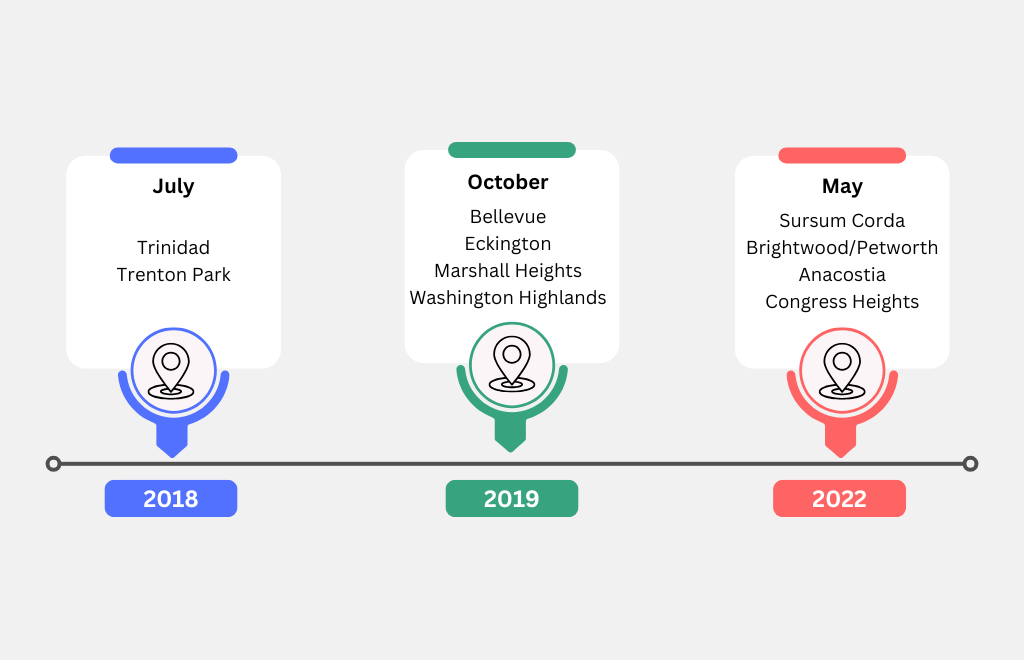GOVERNMENT OF THE DISTRICT OF COLUMBIA
OFFICE OF THE ATTORNEY GENERAL

POSITION VACANCY ANNOUNCEMENT
|
ANNOUNCEMENT NO: #19-014
|
POSITION TITLE:
SUPERVISORY ATTORNEY ADVISOR
(Land Use and Public Works Section Chief)
|
|
POSITION GRADE & SERIES: LX-1 Band
|
SALARY RANGE: $130,000 – $155,000
Salary in this range will be based on a multitude of factors including applicable rules, regulations and guidelines.
|
|
OPENING DATE: December 7, 2018
|
CLOSING DATE: December 21, 2018
|
|
DURATION OF APPOINTMENT: Permanent
|
AREA OF CONSIDERATION: Open to the Public
|
|
WORKSITE LOCATION:
Office of the Attorney General
for the District of Columbia
Commercial Division
Land Use and Public Works Section
441 4th Street NW
Washington, DC 20001
|
NO. OF VACANCIES: One (1)
|
This position is outside of the collective bargaining unit.
DESCRIPTION OF DUTIES: The Commercial Division of the Office of the Attorney General for the District of Columbia seeks a Supervisory Attorney Advisor to manage the Land Use and Public Works Section (Section) within the Commercial Division (Division). The Section provides legal assistance to the Zoning Commission for the District of Columbia (Commission) and the Board of Zoning Adjustment (BZA) as well as the Office of Zoning (OZ), which provides technical and administrative assistance to the Commission and the BZA. In carrying out its responsibilities, the Section provides legal assistance in zoning matters as may be requested by the Office of Planning (OP). Lastly, the Section reviews covenants required by the Zoning Regulations.
The Section’s work product includes, but is not limited to:
- Draft orders and rulemakings.
- Revisions to draft orders submitted by parties.
- Memoranda of legal advice.
- Emails to the Commission and BZA identifying all legal and procedural issues arising from the cases scheduled for decision at their meetings.
In addition to producing the work product described above, the Section’s attorneys attend all Commission and BZA decision meetings, all BZA hearings, and those Commission hearings as determined by the Section Chief in consultation with OZ.
The responsibilities of the Chief include, but are not limited to:
- Supervising the Section’s attorney in carrying out the Section’s work as described above.
- Establishing deadlines for review of Section attorneys’ work product.
- Ensuring that all work product needed before or after Commission and BZA meetings is of the highest quality and provided to OZ in accordance with mutually agreed upon deadlines.
- Working with the Office of the Solicitor General with respect to any petitions for review challenging a Commission or BZA order including reviewing draft briefs and participating in moot courts.
- Maintaining a caseload for applications and petitions that are novel, complex, or have the potential to significantly affect the public or the District government.
- Attending Commission meetings for the above-described class of cases.
- Providing legal advice directly to the Director of OZ, the Commission, and BZA Secretaries, and the OP Deputy Director for Development Review and Historic Preservation.
- Establishing strong and cordial relationships with all participants in the zoning process including the Zoning Administrator, the D.C. Surveyor, members of the private bar, and District citizens and their representatives and advocates.
- Keeping OZ staff informed as to the status of all assignments through order logs or similar mechanisms.
- Responding to inquiries from the Attorney General, the Chief Deputy Attorney General, and other attorneys in the Office of the Attorney General concerning the impact of zoning on their work, and attending meetings as requested by the Attorney General, the Chief Deputy Attorney General, or the Commercial Division Deputy, which may be with high ranking District officials.
- Performing administrative duties including approval of absence requests and time sheets.
- Preparing fair and honest formal and informal performance evaluations of subordinates and providing the Division Deputy with a fair and honest self-evaluation.
- Providing monthly reports to the Division Deputy identifying issues that should be brought to the attention of the Chief Deputy Attorney General.
- Establishing performance goals for the Section consistent with the mission of the Office of the Attorney General.
- Devising and maintaining record keeping systems to generate narrative and statistical reports.
- Performing other duties as assigned.
QUALIFICATIONS: The ideal candidate must have:
(1) at least one (1) year of land use law experience, a significant component of which must be in zoning;
(2) working knowledge of the District’s zoning regulations or those of a comparable jurisdiction;
(3) familiarity with administrative law;
(4) experience appearing before and/or giving legal advice to a rulemaking body or a quasi-judicial body or administrative law judge;
(5) experience drafting or reviewing draft legislation or rulemakings;
(6) experience drafting complex legal memoranda or comparable documents;
(7) ability to work in a high stakes environment under extreme time pressure; and
(8) the skills to lead, motivate, coach, organize, and evaluate others.
ELIGIBILITY: The successful candidate must have a law degree and be an active member in good standing of the bar of any jurisdiction. If not a member of the District of Columbia Bar, the candidate must be sworn into the District of Columbia Bar within 360 days of his/her initial appointment with the Office of the Attorney General for the District of Columbia.
OTHER INFORMATION: The selected candidate will be subject to a background investigation including reference checks.
Please see attachment below for details.

